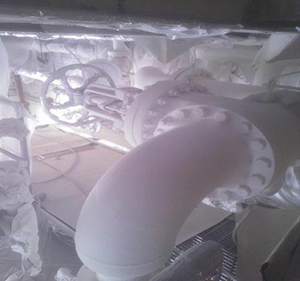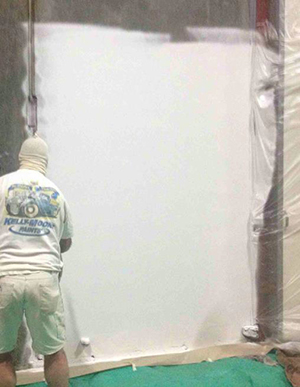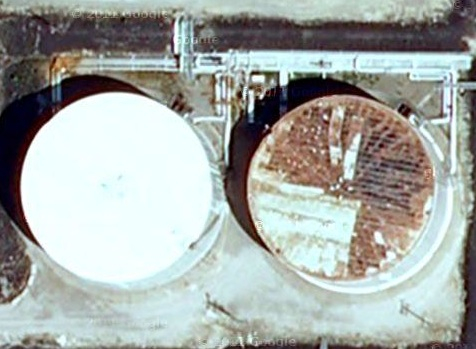About
ASC CIC 4.0 is thin insulation coating that works by blocking heat transfer. Instead of using mass to work as a heat sink and absorb heat (fiberglass), thin insulation coating works like the “Low E” windows, whose thin oxide coatings diffuse infrared radiation.
- With CIC, the tightly packed ceramic particles in each layer block (diffuse) infrared radiation.
- The layering of thin insulation coating also traps a thin layer of air between coats that acts as a conductive heat barrier.
- One layer can work to block solar heat loading and multiple layers work to block radiant heat from hot tanks, steam lines, metal mass and other structures.
- Used on cold surfaces, CIC reflects the heat within spaces to warm up the membranes and control condensation.
ACS’s thermal insulation coating has proven performance for it’s marine, industrial and commercial customers.


Insulation for Challenging Conditions
The first step is to recognize what you’re dealing with in terms of heat transfer. Then avoid repeating solutions that continue to fail. Recognize strengths and weaknesses of all types of materials and use them effectively.
- Is solar heat loading causing AC equipment to cycle continuously?
- Is condensation on cold surfaces causing corrosion, sanitation or safety problems?
- Steam lines with failed insulation?
- Cooking equipment enveloped in steam continuously? Anything in 95% humidity? Cooking equipment can be insulated and still be sanitized with CIC.
- Fuel storage tanks in a tropical marine environment?
Traditional insulation begins failing in these conditions from the first day it’s installed. Ceramic insulation coating may provide the only solution or be combined with a durable material to yield optimal thermal results.

Corrosion & Condensation
Preventing contact with moisture is the best way to prevent corrosion. Using insulation that can’t absorb moisture is another. Unfortunately, fiberglass, rock wool, calcium silicate and other traditional insulations all absorb moisture and promote corrosion. By covering surfaces, they also prevent visual inspection of the substrate. Insulation coating protects surfaces from corrosion while providing insulation value.

